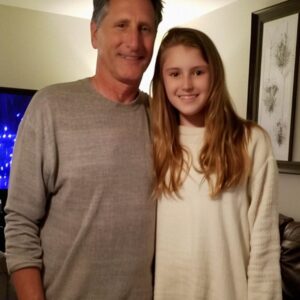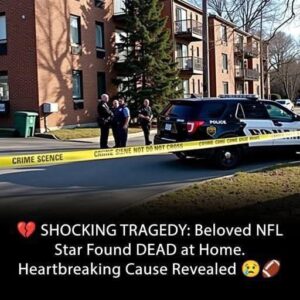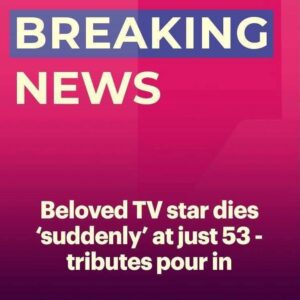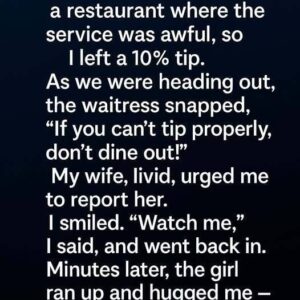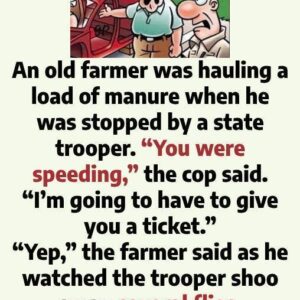The Fourth of July started like any other—sunlight pouring through the windows, the smell of sizzling burgers in the air, and our backyard filled with the buzz of family voices. But for my seven-year-old son, Eli, the only thing that mattered was lighting fireworks with his dad. He’d been counting down for weeks, rehearsing exactly how he’d hand over the sparkler, how they’d launch rockets together and laugh under a sky filled with color. This was his moment. And it was supposed to be with Aaron.
From the second Eli ran into the kitchen in his flag-themed sneakers, waving that little American flag like it was sacred, I saw the hope in his eyes. “Mom, do you think Dad remembered?” he asked, wide-eyed and trusting. “He promised, baby,” I said softly. “He said he wouldn’t miss it.” Eli beamed, believing every word.
I wanted to believe it too, but deep down, I remembered. I remembered the school play when Eli scanned the crowd in his astronaut costume and found his dad’s seat empty. I remembered the birthday at the bowling alley, when he waited to cut the cake, watching the door long after the candles melted. That night, Aaron had stumbled in late, reeking of whiskey and excuses. Eli had already taught himself how to smile through disappointment.
Still, today was supposed to be different.
By noon, the yard was alive. My brother grilled burgers while his wife chased their twins. Aaron lounged in a chair with a beer, laughing with Dylan and checking his phone more often than he looked at Eli. But Eli didn’t notice. Every fifteen minutes, he tugged at his dad’s shirt, asking how long until sunset. “Don’t worry, bud,” Aaron said, ruffling his hair. “We’re going to light up the sky.”
When the sun began to dip low, painting everything gold, Eli ran upstairs to change. He came back down proudly in his “fireworks outfit”—a white shirt with a faded flag, denim shorts, and those same bright sneakers. He laid out his sparklers on the porch, careful and deliberate, ready for his big moment.
I was in the kitchen when I heard the screen door creak. Aaron grabbed his cooler and his phone and said, “I’m heading to Dylan’s. Just for a bit. I’ll be back before the fireworks start.”
I froze. “You’re serious?” I asked.
“It’s only an hour,” he said casually. “He can hang with the twins.”
I didn’t answer. Behind the screen, Eli stood quietly, his small fingers clenched around the doorframe. Aaron didn’t look back. The truck door slammed. The engine roared. And he was gone.
Eli sat on the porch steps, still holding his flag. Every car that passed made him straighten with hope. “That’s probably him,” he whispered. “Probably just traffic.” But as the minutes dragged on, his hope faded. By nine, his voice was barely a whisper. “He said he’d come.”
Eventually, he stopped speaking altogether. His little shoulders slumped. He gripped one sparkler so tightly it bent in the middle, but he didn’t lift it. I sat beside him, my hand on his back, helpless as I watched his heart quietly break.
That’s when Richard, my father-in-law, came out and sat with us. He didn’t speak right away. Then he said, “I was like that too, when Aaron was Eli’s age. I missed everything—games, birthdays, dinners. Thought there’d always be time.”
He rubbed his face, filled with the weight of regret. “But there wasn’t. And I can’t get that time back.”
Just then, headlights turned into the driveway. Aaron stepped out, grinning, cooler still in hand. “What did I miss?” he asked.
Richard stood and said only one thing: “Son, you’re making the biggest mistake of your life.”
Aaron froze. The smile vanished. He looked past his father to the porch, where Eli had fallen asleep in my lap, clutching the sparkler like a broken promise. The cooler dropped with a dull thud as Aaron crossed the lawn and knelt beside us.
“I’m sorry, buddy,” he whispered. “You awake?”
Eli stirred. “Did I miss it?” he mumbled. “It’s too late, right?”
“No,” Aaron said, brushing his son’s hair back. “It’s not too late.”
That night, under a moonlit sky, we lit every last firework. The air exploded in color. Eli laughed—pure, full-bodied joy—and when the final spark faded, he threw his arms around Aaron. “That was the best one ever,” he whispered.
“Next year, we’ll go even bigger,” Aaron replied. And for the first time, I believed him—not because of how he said it, but because of how he looked at his son, like nothing else in the world mattered more.
Aaron didn’t change overnight. But he did change.
He started turning down Dylan’s invites more often. He showed up to parent-teacher night. He brought cinnamon buns to the school festival. He started making Sunday pancakes—ridiculously sweet ones that Eli bragged about to everyone.
One night in the kitchen, after dropping Eli off for a sleepover, Aaron flipped a flatbread and said quietly, “It was what Dad said that night. That’s what woke me up. I saw myself in him. And I hated it.”
He looked at me and added, “I used to think it was normal—to be busy, to make it up later. But watching Eli wait like that… Mila, I swear, I’ll never do that again.”
Later, in bed, he reached for my hand. “I’m not missing anything else. Not with Eli. Not with you.”
Aaron didn’t just return for the fireworks. He came back to us. And this time, he stayed.
